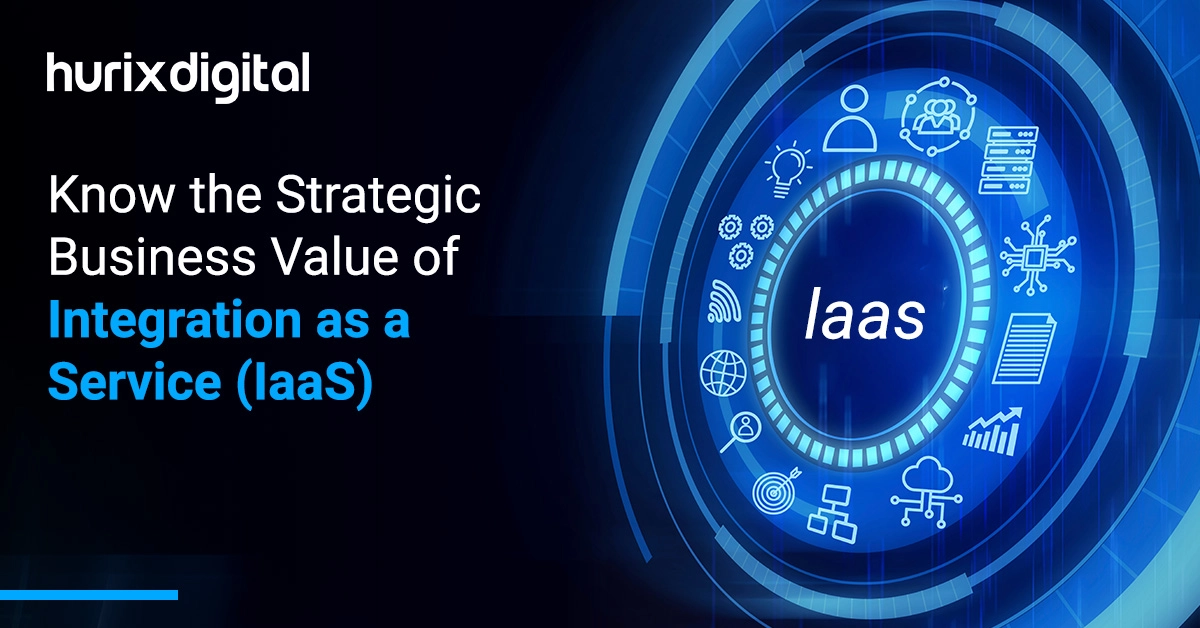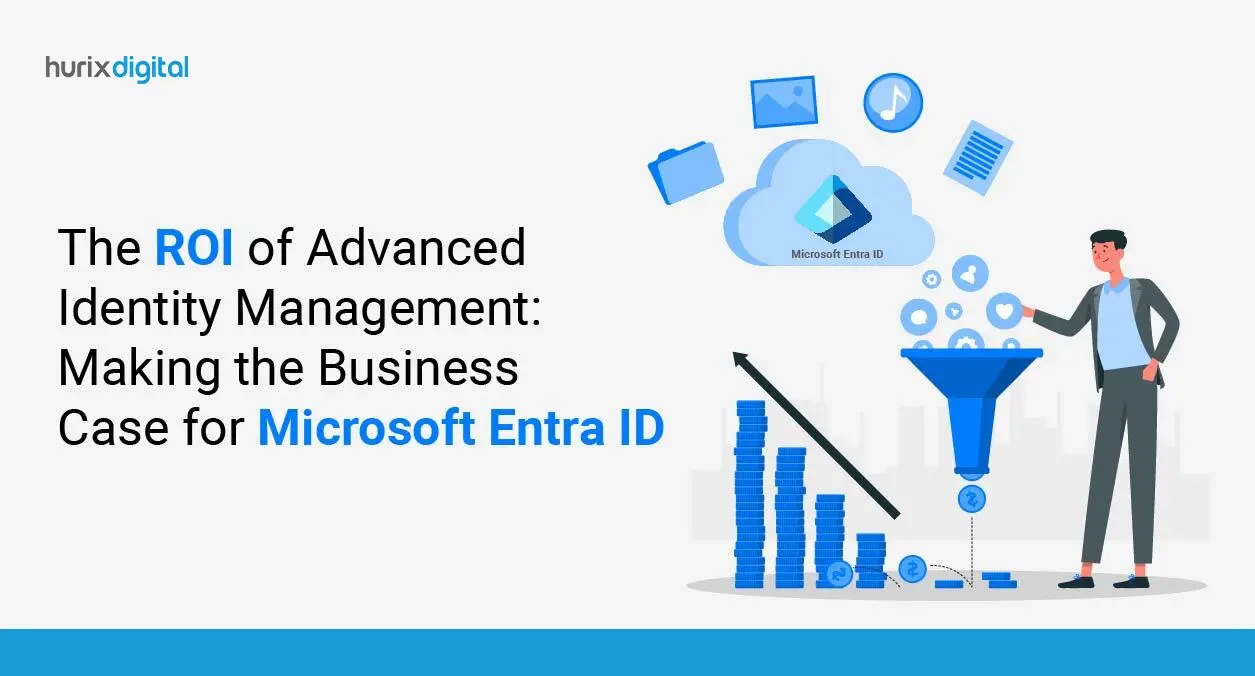
Know the Strategic Business Value of Integration as a Service (IaaS)
Summary
This blog overviews Integration as a Service (IaaS), a cloud solution for integrating applications and systems to streamline operations, increase agility, and drive innovation.
If you are looking for one of the most successful ways to support integrations between your enterprise applications, your answer is here. Integration as a Service (IaaS) is a cloud-based solution that will help you optimize your business’s digital operations.
With IaaS, you will be able to create an efficient, seamless, and cohesive digital environment that will also be scalable and flexible. This will ensure that your business can quickly adapt to changing needs and technologies, thus improving your competitive edge.
Integration as a Service will not only streamline your integration processes but also do so in a manner that helps you save time and costs. Thus, in this article, we will help you understand the strategic business value of IaaS and why you should opt for it.
Table of Contents:
- What is Integration as a Service (IaaS)?
- Key Components of Integration as a Service
- The Strategic Advantages of Integration as a Service for Businesses
- Conclusion
What is Integration as a Service (IaaS)?
Integration as a Service is a cloud-based delivery model that will help you integrate your organization’s disparate technologies. Under this model, you will outsource your integration projects to a service provider.
The service provider will then offer you comprehensive integration design and implementation services that will help you link the functionality and data of multiple technologies with each other. These would then be incorporated into your organization’s IT infrastructure.
Thus, with IaaS, you will lighten your business’s load by outsourcing your entire integration pipeline from the planning, delivery, and maintenance stages. It is best suited for your organization if you use multiple technological services and they need to be integrated.
You can use IaaS for multiple actions like:
- Managing your organization’s data storage, setting up reliable backup systems, and carrying out effective data recovery processes.
- Hosting and maintaining your organization’s websites and applications.
- Utilizing the tools provided by the IaaS provider for developing and testing your organization’s applications.
- Supporting data analytics and thus helping your organization manage its huge datasets.
Also Read: The Rising Importance of Customer Experience Management for Business Success in 2024!
Key Components of Integration as a Service
As one of the emerging trends in cloud-managed services, the key components of Integration as a Service are:
1. Integration Tools
These refer to the software applications that will support the connection between different systems and apps of your organization. They will ensure that the data and processes are not only seamlessly transferred but also synchronized across all the platforms. To ensure their efficiency, the IaaS provider might also undertake integration testing.
2. Middleware
With Middleware, the communication between different software platforms and applications is made easy and quick. It translates and routes the data, and manages transactions and messaging so that all your organization’s systems can work together.
3. APIs
APIs will help the different software used by your organization in effectively communicating and sharing data sources. Considering that they provide a set of protocols and rules, they are the base of application integration, helping you create a connected ecosystem of applications and services.
4. Cloud Infrastructure
This component of IaaS will help you achieve an automated cloud infrastructure with the help of the required software and hardware resources provided over the Internet. These resources will be available for you on demand, helping you manage your costs, while also ensuring scalability and flexibility.
The Strategic Advantages of Integration as a Service for Businesses
The best IaaS for business leaders will help them maximize its advantages by adding strategic value to their businesses in the following ways:
1. Rapid Integration Deployment with IaaS
With Integration as a Service, you will have pre-built API functions that will help you quickly and efficiently establish connections between different applications and systems.
With no need to complete the integration manually, your developers will have the time and resources to launch new products, services, or features in the market. This will ensure the continued success of your organization.
2. IaaS and Faster Time-to-Value
To facilitate communication between the different systems and applications of your organization, IaaS has lots of connectivity options, including pre-built database connectors. It also supports different protocols like REST, HTTPS, SOAP, and messaging queues.
It also offers the necessary features to create and manage workflows and for carrying out complex integration processes. This will thus help you in automating your business processes, which will ensure a smooth flow of data and coordination.
All of this will help you not only achieve a faster deployment but also get a quicker and higher return on investment (ROI). The use of pre-built connectors and automation will also help you streamline your business’s operations, reduce errors, and improve accuracy and productivity.
3. Increased Business Agility with IaaS
Integration as a Service will also increase the agility of your business because you can scale up or down based on the integration workload of your organization. It also gives the flexibility of integrating multiple applications and systems used in your organization.
This will ensure that not only it will support the growth of your business but also help you adapt easily to the changes in the technological market. Also, the real-time data processing facilitated by it will assist you further in terms of making faster and better decisions.
Additionally, these services can be bought on demand, which means that during a fluctuating market, you would not be bogged down by a fixed expense. Rather, you will have the option to adjust this cost to meet your requirements.
4. Comprehensive Management and Security with IaaS
With Integration as a Service, you will also get access to monitoring and management tools that will help you track the health and performance of your integration processes.
To do so, you will have visibility into system status, errors, and messages. This will help you identify and address the issue quickly.
Also, to protect the data during the integration process, IaaS uses security measures like authentication, data encryption, authorization, and compliance controls. This will also help you adhere to the relevant regulatory requirements.
Also Read: How Can You Adapt to Ever-Evolving Business Needs with Staffing Strategies?
Conclusion
If you want an easy, fast, and reliable method of connecting the different systems and applications of your organization, then you must choose Integration as a Service. With IaaS, you will be able to have access to all your data on one interface irrespective of whether they were originally on-premise or in the cloud.
With its ready-made connectors and automation, integration processes will stop being a complexity and hassle for you, but rather a task that will help you improve the productivity and profitability of your organization.
The best part is that you will not have to make any initial investments because it follows a pay-as-you-use model. Also, you will not have to worry about hardware and software upgrades or maintenance, as your service provider will do it for you.
Integration Services by Hurix Digital is one of the best IaaS for business leaders because you will get access to a team of experts and a solution that will be able to meet all the unique integration requirements of your business.
Schedule a call with us now to learn more about our Integration Services and how they can help your business improve its efficiency and innovations.

Currently serving as the Vice President of Technology Delivery Operations at HurixDigital, a prominent global provider of digital content and technology solutions for publishers, corporations, and educational institutions. With over 16 years of experience spanning EdTech and various domains, I hold certification as a SCRUM Product Owner (CSPO). My expertise includes operations, finance, and adept people management skills.







